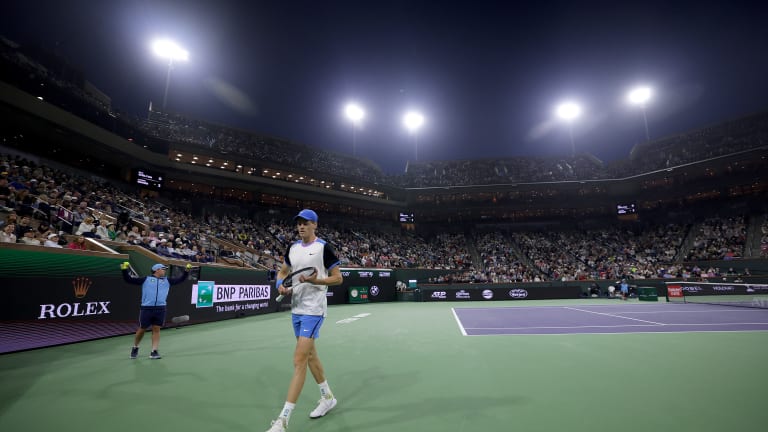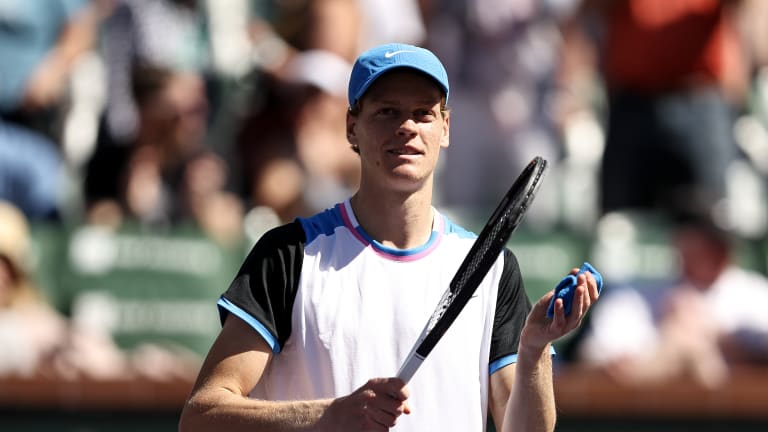Indian Wells, USA
Jannik Sinner is proof that you don’t have to be bad to be good for tennis
By Mar 13, 2024Indian Wells, USA
Mackenzie McDonald is paying the college tennis experience forward with a new fund
By Mar 17, 2025Indian Wells, USA
Mirra Andreeva and Jack Draper win breakthrough titles at Indian Wells: What did we just witness?
By Mar 17, 2025Indian Wells, USA
Jack Draper's run through Indian Wells concludes with his first ATP Masters 1000 title
By Mar 16, 2025Indian Wells, USA
Holger Rune vs. Jack Draper: Where to Watch, Indian Wells Preview, Betting Odds
By Mar 16, 2025Indian Wells, USA
Holger Rune reaches first Indian Wells final over Daniil Medvedev
By Mar 15, 2025Indian Wells, USA
Mirra Andreeva vs. Aryna Sabalenka: Where to Watch, Indian Wells Preview, Betting Odds
By Mar 15, 2025Indian Wells, USA
Mirra Andreeva, 17, advances to Indian Wells final, beating Iga Swiatek in chilly conditions
By Mar 15, 2025Indian Wells, USA
Ruthless Aryna Sabalenka storms past Madison Keys, 6-0, 6-1, in semifinals of Indian Wells
By Mar 15, 2025Indian Wells, USA
Carlos Alcaraz vs. Jack Draper: Where to Watch, Indian Wells Preview, Betting Odds
By Mar 15, 2025Jannik Sinner is proof that you don’t have to be bad to be good for tennis
The 22-year-old’s success has made him a welcome face of the sport.
Published Mar 13, 2024
Advertising

Jannik Sinner is under the spotlight more than ever, but that hasn't changed his ultra-calm—and ultra-effective—approach to the game.
© Getty Images
Advertising

From Roland Garros...
© AFP via Getty Images
Advertising

...to the ATP Finals—and beyond—the Carota Boys, Sinner's fan club, makes their presence plainly visible.
© AFP via Getty Images
Advertising
Advertising

Sinner seems to be someone who treats other people as equals, and sets out to fix problems instead of whining about them. This is a good thing.
© Getty Images